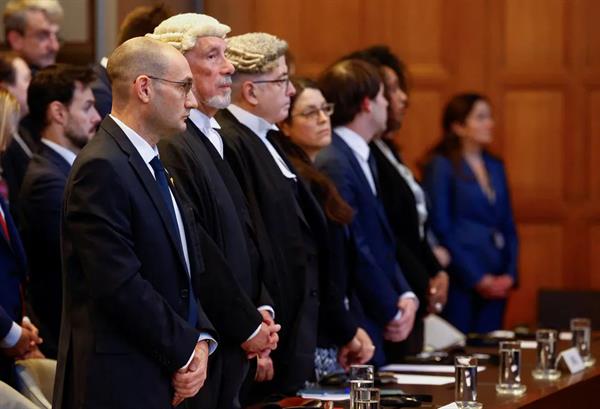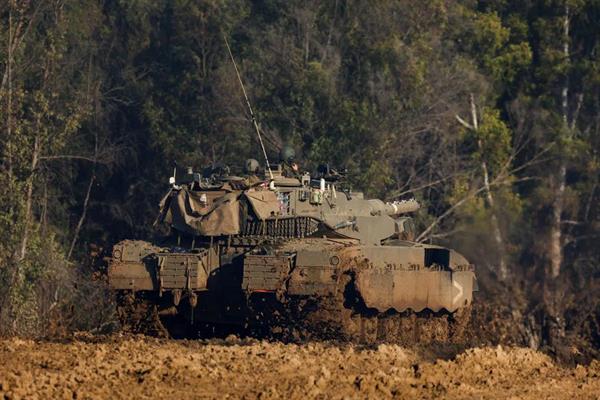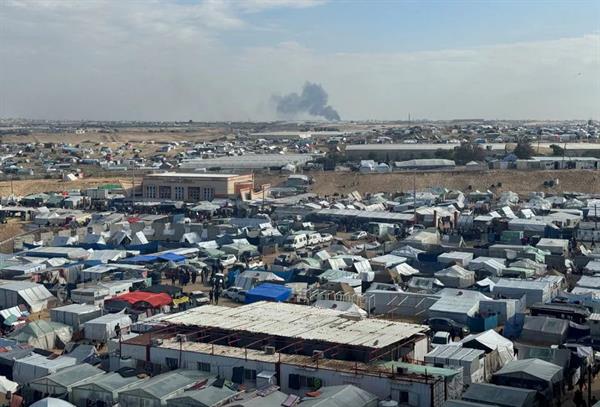World Court stops short of Gaza ceasefire order but lets genocide case stand
World Court orders Israel to prevent genocide against Palestinians, avoiding a ceasefire. Legal setback for Israel; South Africa hails victory.

Related Image: © Reuters
On January 26, the International Court of Justice (ICJ) directed Israel to prevent acts of genocide against Palestinians and take additional measures to protect civilians. The ruling, stemming from a case brought by South Africa, fell short of ordering a ceasefire but marked a legal setback for Israel. While denying a binding order to halt the Gaza conflict, the court recognized Palestinians' protection under the genocide convention, allowing a case to be heard regarding potential violations of their rights. The decision was generally welcomed by Palestinian officials, while Israeli Prime Minister Benjamin Netanyahu expressed relief at the rejection of the demand for a ceasefire. The ruling instructed Israel to prevent its troops from committing genocide, address incitement, improve the humanitarian situation, and report progress within a month.

Related Image: © Reuters
The court did not determine the merits of the genocide allegations. South Africa, which accused Israel of state-led genocide, considered the order a "decisive victory" for international rule of law. Meanwhile, on the ground in Gaza, the conflict intensified, particularly in Khan Younis, with ongoing battles and significant destruction in densely populated areas. Israel reported involvement in "intensive battles" and the destruction of tunnel shafts and militant infrastructure. Palestinians claimed difficulties in rescuing the wounded due to alleged blockades of hospitals, a claim denied by Israel, which attributed the challenges to Hamas operating in those areas. The court's decision, although not subject to appeal, lacks an enforcement mechanism. Israel had sought to dismiss the case, asserting self-defence against Hamas attacks. South Africa hopes Israel will comply with the order, emphasizing its significance for international law.
26 जनवरी को, अंतर्राष्ट्रीय न्यायालय (ICJ) ने इज़राइल को फिलिस्तीनियों के खिलाफ नरसंहार के कृत्यों को रोकने और नागरिकों की सुरक्षा के लिए अतिरिक्त उपाय करने का निर्देश दिया। दक्षिण अफ़्रीका द्वारा लाए गए एक मामले से उपजा फैसला, युद्धविराम का आदेश देने से कम हो गया लेकिन इज़राइल के लिए एक कानूनी झटका था। गाजा संघर्ष को रोकने के लिए एक बाध्यकारी आदेश से इनकार करते हुए, अदालत ने नरसंहार सम्मेलन के तहत फिलिस्तीनियों की सुरक्षा को मान्यता दी, जिससे उनके अधिकारों के संभावित उल्लंघन के संबंध में एक मामले की सुनवाई की अनुमति मिल गई। इस फैसले का आम तौर पर फिलिस्तीनी अधिकारियों ने स्वागत किया, जबकि इजरायल के प्रधान मंत्री बेंजामिन नेतन्याहू ने युद्धविराम की मांग को खारिज करने पर राहत व्यक्त की। सत्तारूढ़ ने इज़राइल को अपने सैनिकों को नरसंहार करने से रोकने, उत्तेजना को संबोधित करने, मानवीय स्थिति में सुधार करने और एक महीने के भीतर प्रगति की रिपोर्ट करने का निर्देश दिया।

Related Image: © Reuters
अदालत ने नरसंहार के आरोपों की योग्यता का निर्धारण नहीं किया। दक्षिण अफ्रीका, जिसने इज़राइल पर राज्य के नेतृत्व में नरसंहार का आरोप लगाया, ने इस आदेश को अंतरराष्ट्रीय कानून के शासन के लिए "निर्णायक जीत" माना। इस बीच, गाजा में जमीन पर संघर्ष तेज हो गया, विशेषकर खान यूनिस में, घनी आबादी वाले क्षेत्रों में चल रही लड़ाइयों और महत्वपूर्ण विनाश के साथ। इज़राइल ने "गहन लड़ाई" में शामिल होने और सुरंग शाफ्ट और आतंकवादी बुनियादी ढांचे के विनाश की सूचना दी। फिलिस्तीनियों ने अस्पतालों की कथित नाकाबंदी के कारण घायलों को बचाने में कठिनाइयों का दावा किया, इस दावे का इज़राइल ने खंडन किया, जिसने उन क्षेत्रों में सक्रिय हमास को चुनौतियों के लिए जिम्मेदार ठहराया। अदालत का निर्णय, हालांकि अपील के अधीन नहीं है, लेकिन इसमें प्रवर्तन तंत्र का अभाव है। इज़राइल ने हमास के हमलों के खिलाफ आत्मरक्षा का दावा करते हुए मामले को खारिज करने की मांग की थी। दक्षिण अफ्रीका को उम्मीद है कि इज़राइल अंतरराष्ट्रीय कानून के लिए इसके महत्व पर जोर देते हुए आदेश का पालन करेगा।